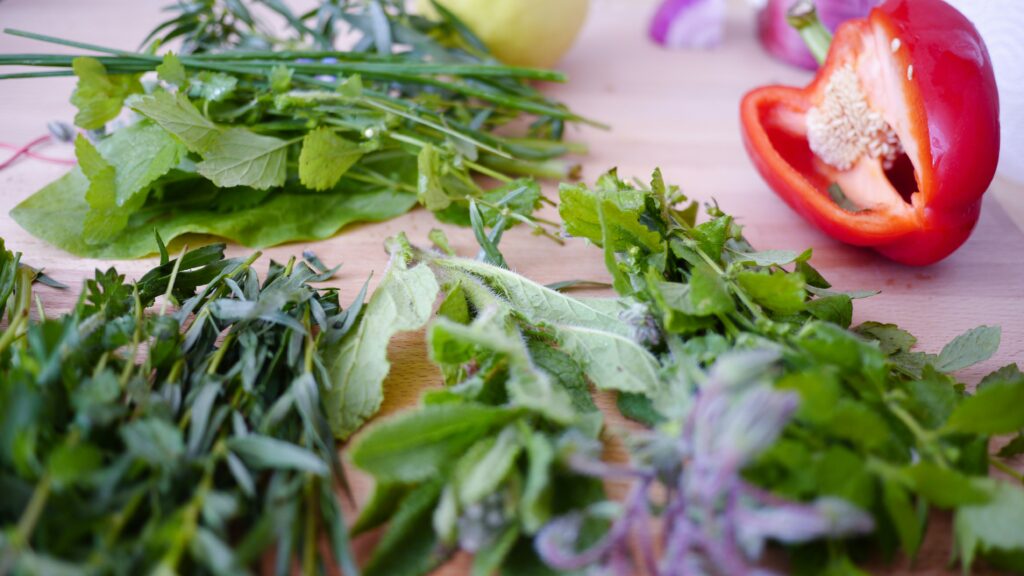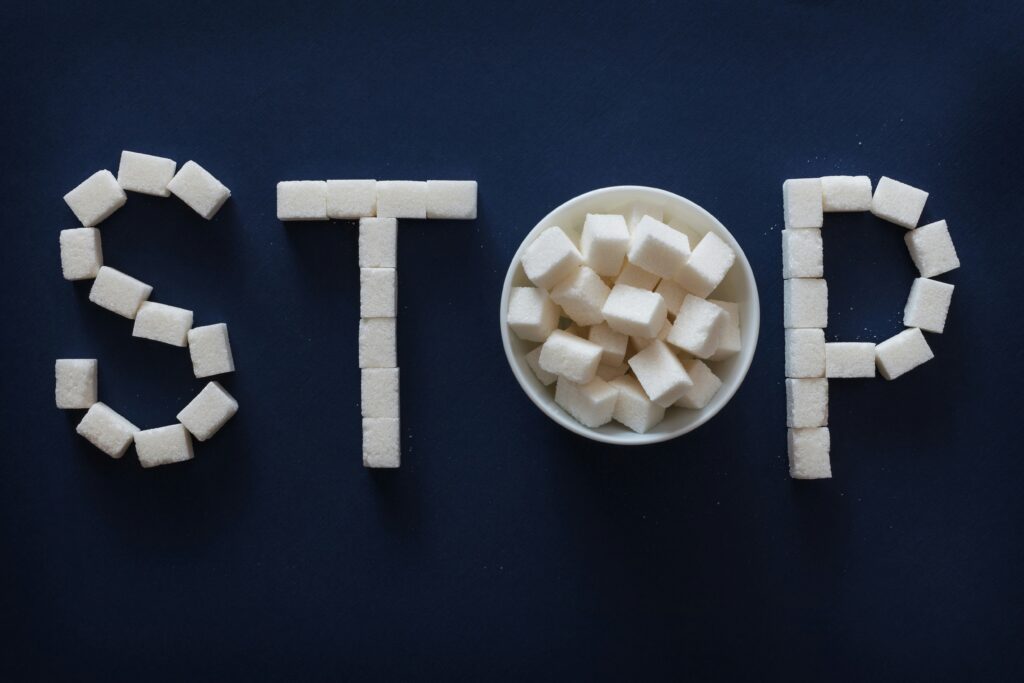Shedding pounds and preventing them from coming back is a challenge. With all the diet and weight-loss plans out there, figuring out what method works best can be daunting. It all boils down to two major issues: eating right and exercising more, which revolve around natural ways to lose weight and, at the same time, improve your health.
Making dietary changes does not have to be expensive or time-consuming, and even busy people can find time for a daily workout. Consistency, discipline and persistence are the keys to success. Here are 6 ways to lose weight naturally.
1. Identify Bad Foods

The first and most critical step is to refrain from food items that cause unnecessary weight gain. Canned, boxed and frozen meals loaded with processed sugar and saturated fats are major culprits. Sodas should be avoided not only because of their sugar content, but also to prevent the stomach bloating that they can trigger.
Moderation is advised for breads and other high-calorie foods. Salt promotes weight gain because it enhances the body’s retention of fluids. Dieters must confront their snacking compulsions, and stick to three balanced, moderate-sized meals per day. If hunger strikes between meals, fruit is a healthy option. However, eating just before bedtime leads to storing fat rather than burning it, because a person’s metabolism slows while sleeping.
Learning to read and understand the nutritional information on packages is crucial. Carbohydrates at high levels are bad because the body stores them as fat. It is helpful to eat a meal right before going to the grocery store, to curb impulse buying. Restaurants also can be threats to healthy eating, due to the high fat and sugar content in many of their meals.
Fast Tip: Unless one is particularly diligent, it is difficult to easily obtain the nutritional content of food ordered outside the home, at either traditional restaurants or fast-food chains. For that reason, hedge toward preparing meals at home as frequently as possible.
2. Switch to More Nutritious Foods – Natural Ways to Lose Weight

A good rule of thumb is that fruits and vegetables should dominate the dinner plate, with smaller portions of meat and other items. Veggies with the most nutrients and fewest calories are the green, leafy varieties. Some of them, such as kale and spinach, burn fat. Avocados contain a sugar that limits the release of insulin, which causes fat to accumulate. Spinach, grapefruit and Omega-3 fatty acids found in fish also help get rid of fat. Hot chilies and ginger boost metabolism, which reduces hunger pangs.
Staying healthy while losing weight requires consuming the necessary amounts of protein, fiber, vitamins, minerals and healthy fats. Failing to do so can result in illness or disease. Among the protein alternatives to red meat are fish, eggs, soy products, beans, nuts and whole grains.
Fast Tip: When in doubt, gravitate toward so-called “superfoods.” Typical superfoods, which house a dense amount of valuable nutrients, include berries, fatty fish, nuts, leafy greens, avocados, green tea, turmeric, yogurt, and strangely, dark chocolate.
3. Exercise Every Day

Working out, or at least taking vigorous walks, should be part of any weight-loss plan. The pounds will not go away unless the body burns more calories than it consumes. Cardio exercises, defined as those that elevate the heart rate for 20 minutes, are the most effective.
Those with physical limitations may instead take short walks, climb stairs, perform floor exercises or jumping jacks, do yoga or simple aerobics, or perhaps bicycle or swim. Some people take up tennis or golf. Others purchase exercise equipment such as a stationary bicycle, treadmill, elliptical trainer or weight machine. The best time to exercise is soon after eating a meal, to burn some of the newly acquired calories. The goal for most people should be 150 minutes of exercise per week.
The benefits of losing weight by eating right and exercising are not limited to looking and feeling better. Getting physically fit also lowers the risk of heart disease, strokes, high blood pressure, high cholesterol, cancer and diabetes. Experts advise starting slow and having realistic expectations but sticking to it.
Fast Tip: In our minds, we often conceptualize workouts as grueling and strenuous. Shift your perspective, if possible. A workout need not be daunting, one does not need to train as if preparing for a marathon. Take a daily walk, a light morning, interweave easy exercises like planks, push-ups, or sit-ups between commercials while viewing a show. While a gym offers a conducive environmental setting for engaging in a workout, it is not the only setting in which to do so.
4. Hydrate – Natural Ways to Lose Weight

Consuming an excess amount of water often yields a negative connotation of adding superfluous “water weight.” While, very temporarily, that may be true: Without water, your body’s natural processes of expeditiously metabolizing stored fat and carbohydrates are radically impaired. The process of metabolizing fat, called lipolysis, transpires when water molecules interact with triglycerides to create glycerol. Without water, this process isn’t effectively catalyzed, thereby ameliorating your body’s proclivity toward eliminating obstinate fat cells.
The quantity of water you should drink each day depends on numerous variables, including your activity level, age, body size, sun exposure, and overall general health. According to most doctors, females should imbibe approximately 9 glasses of water per day; while males should be imbibing approximately 13.
Fast Tip: Thirst is often misperceived as a feeling of hunger. Drinking the recommended daily intake of water per day can induce a sensation of “feeling full,” counteracting your cravings for excess foodstuffs.
5. Power-Up With Protein

Prioritizing protein in your diet can vastly improve your efforts at losing weight naturally. Your body burns calories at a higher rate when digesting and metabolizing protein, potentially boosting a person’s metabolism by up to 80-100 calories per day. Moreover, as with emphasizing water consumption, consumption of protein can be persuasive in staunching one’s appetite. Some studies have presented compelling data that test subjects consumed, on average, 400 less calories per day when adhering to a high-protein diet.
Notable examples of lean forms of protein include chicken breast, beans and lentils, cottage cheese, Greek yogurt, fish, turkey breast, and tofu.
Fast Tip: While veggies and fruits should be superordinate in your diet, it isn’t unwise to co-mingle your fruit and veggie dishes as often as possible. Add chicken breast to your salad, or generous serving of berries to your Greek yogurt. Doing so will ensure you have a more balanced diet.
6. Sleep Soundly – Natural Ways to Lose Weight

Failing to accrue a sufficient amount of sleep can invoke a chain reaction of things that all contribute to incremental weight gain., When one is short on sleep, for instance, it may become more tempting to become dependent on morning lattes or calorically dense caffeinated beverages to remain functional. One may also consequently become too lethargic to engage in one’s daily fitness regime. Takeout options for food may become more practicable and convenient.
When an individual becomes exhausted, the brain’s reward centers become enhanced, suddenly becoming overeager for anything that offers relief. In such a scenario, food cravings can become particularly overbearing, inevitably leading to poor dietary choices.
Most people require 7-9 hours of sleep per night.
Fast Tip: To effectively facilitate sleep, adhere to some basics: Shut down your electronics; establish a bedtime ritual; adhere to a consistent sleep schedule; avoid naps; and turn out the lights.
7. Unsweetened Coffee

A morning habit that committed caffeine fiends regularly adhere to is the routine consumption of coffee. In and of itself, regularly imbibing coffee is not a deleterious nutritious habit. However, when one insists on adding sugar, caramel, chocolate, milk and other ingredients to the basic concoction, it obviously then yields a saturation of calories that is unhealthy.
Black coffee is a calorically low item. Moreover, its additive caffeine can support weight loss by contributing to energy levels, increasing one’s propensity to engage in cardiovascular activities. Black coffee also tends to leave one feeling “full,” while simultaneously containing almost zero calories.
Fast-Tip: Order black, or unsweetened coffee. Does anyone really drink coffee for the flavor? No, they drink it because it is a bountiful storage center of caffeine. Caffeine is an addictive agent, so if you’re going to engage in it, engage in its consumption without excess calories.
8. Count Calories – Natural Ways to Lose Weight

Perhaps this needn’t be mentioned, but common sense can oftentimes be in short supply. The average male requires 2,500 calories per day. The average female requires 2,000 calories per day. The caloric intake of any meal is generally listed on its container, package, or menu. Apply the arithmetic to your daily consumption of food and beverages.
If you’re determined to lose weight, mentally calculate the amount of calories your body is absorbing. If you’re exercising regularly, those calories will be processed faster. If you’re indolent, they will be processed slower.
Fast Tip: Count your calories. It isn’t a sin if you’re seeking a sustainable weight-loss solution without the intervention of pharmaceuticals that will prove to be far more deleterious to your health than simply abstaining from excessive consumption of food.
For further information on prioritizing weight loss, reference the following articles:
5 Effective Yet Easy Ways To Exercise When You Don’t Have Time
Foods to Eat and Ones to Avoid to Burn Belly Fat



